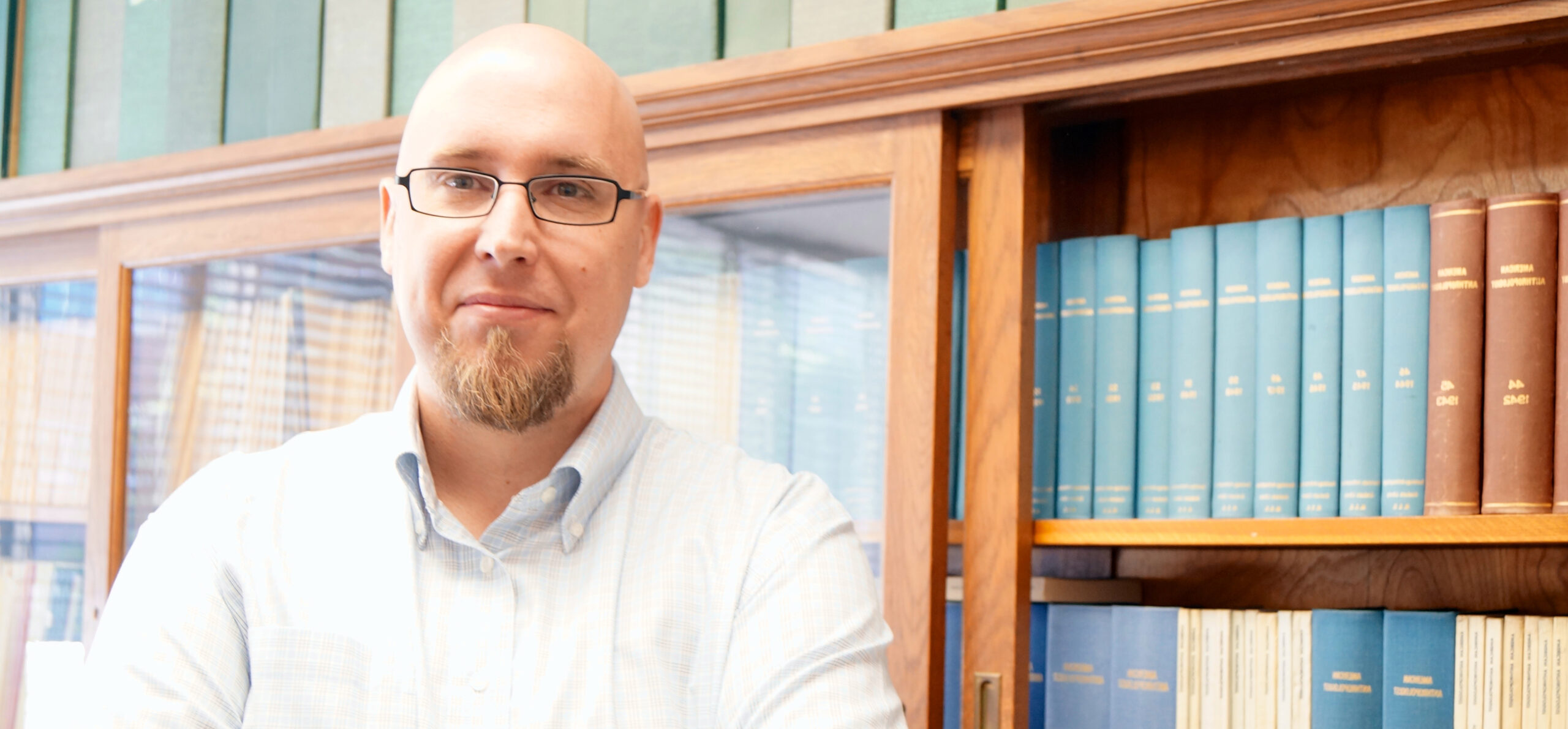-
Message from the Chair: Dr. Jodie O’Gorman
Fall Semester 2017 has come and gone, final grades are in, and MSU is under a blanket of snow. It was a busy and exciting semester. As I reported in the last newsletter, Dr. Fredy Rodriguez-Mejia joined the faculty in August as an undergraduate teaching-focused Assistant Professor. This fall he organized the First Annual Anthropology […]
-
MSU Forensic Anthropology Lab
The MSU Forensic Anthropology Laboratory, directed by Dr. Joseph Hefner, provides some of the best forensic anthropology PhD training in the country thanks to the program’s incredible research, teaching, and service opportunities. Under the supervision of Dr. Todd Fenton, Dr. Joseph Hefner, and Dr. Carolyn Isaac, graduate students gain experience conducting public service forensic work […]
-

Professor Ethan Watrall Co-PI on $1.47 Million Grant from Mellon Foundation
The Department of Anthropology is very pleased to announce that Professor Ethan Watrall is one of the Principal Investigators that has been awarded a major grant from the Andrew W. Mellon Foundation. The project, entitled Enslaved: People of the Historical Slave Trade, is collaboration with MATRIX: The Center for Digital Humanities and Social Sciences (where Watrall serves as […]
-

MSU Forensic Anthropology Lab Brings Closure to Families
Dr. Joe Hefner of the MSU Forensic Anthropology Lab, housed within the Department of Anthropology, was recently featured on ABC 12 News, a local Mid-Michigan subsidiary. When human remains are found by the Michigan State Police, they are brought to the MSU Forensic Anthropology Lab for identification, as was the case this fall when remains […]
-
Congratulations Dr. Ryan Klataske!
The Department of Anthropology is pleased to announce it’s newest PhD., Dr. Ryan Klataske. We are proud to see Ryan come to the completion of his graduate school career here at MSU after the successful defense of his dissertation on December 8th. The department faculty and staff wish Ryan and his family all the best […]
-
Dr. Lovis named editor for Midwest Archaeological Perspectives Series
Dr. William (Bill) Lovis has been named the inaugural Editor for a new book series, Midwest Archaeological Perspectives, launched by a partnership between the Midwest Archaeological Conference, Inc. and the University of Notre Dame Press. The series will include the most compelling and current works of archaeological narrative and insight for the American Midwest region, […]
-
LEADR lab featured in the State News
The Lab for the Education and Advancement in Digital Research (LEADR) was recently featured in the State News, highlighting Anthropology graduate and undergraduate students. This lab is a collaboration between the Department of History, Department of Anthropology, and MATRIX: The Center for Digital Humanities & Social Sciences to allow students to engage with digital tools and technologies and to […]
-
Congratulations Dr. Fayana Richards!
The Department of Anthropology would like to congratulate our newest PhD. Dr. Fayana Richards! We are very excited to see Fayana come to the completion of her graduate career here at MSU after the successful defense of her dissertation on November 21 and we wish her and her family all the best as she moves […]
-
Congratulations Dr. Adam Haviland!
The Department of Anthropology would like to congratulate our newest PhD., Dr. Adam Haviland! We are very excited to see him come to the completion of his graduate career here at MSU after the successful defense of his dissertation on November 13 and we wish him and his family all the best as he moves […]
-
MSU alumna discusses volunteer tourism
Dr. Andrea Freidus recently published a piece in The Conversation, an online not-for-profit media outlet. Her piece entitled “Volunteer tourism: what’s wrong with it and how can it be changed,” came out on November 8th. Here is a small excerpt from her piece: “Volunteer tourism, or voluntourism, is an emerging trend of travel linked to “doing good”. […]